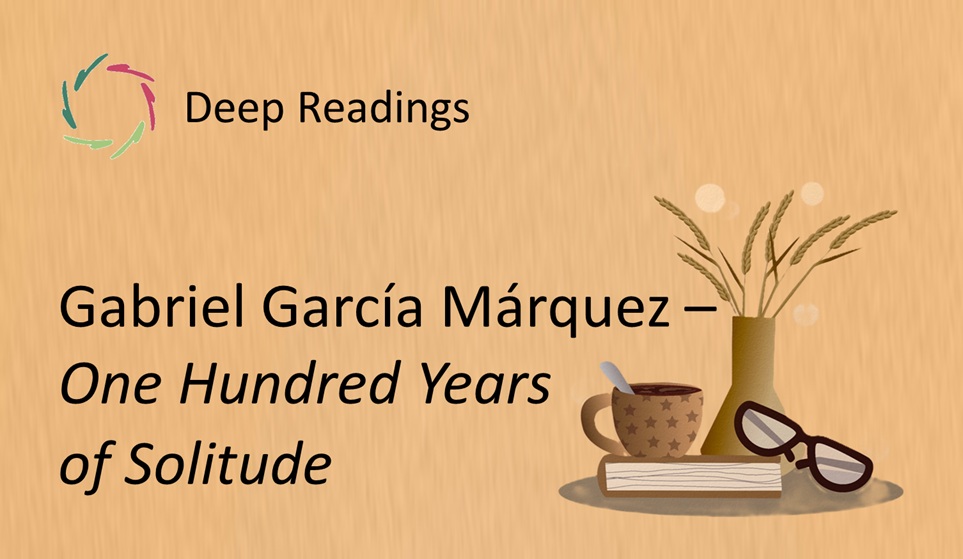Deep Readings: Emily Dickinson – Because I could not stop for Death

The Fragment
Because I could not stop for Death –
He kindly stopped for me –
The Carriage held but just Ourselves –
And Immortality.We slowly drove – He knew no haste
And I had put away
My labor and my leisure too,
For His Civility –We passed the School, where Children strove
At Recess – in the Ring –
We passed the Fields of Gazing Grain –
We passed the Setting Sun –
Contextual Glimpse
Emily Dickinson (1830–1886), the reclusive poet of Amherst, wrote nearly 1,800 poems, most unpublished in her lifetime. “Because I could not stop for Death” is among her most celebrated. In it, Death is not a terror but a courteous carriage driver who escorts the speaker on a calm ride past scenes of life: school, fields, the setting sun. Dickinson’s vision intertwines intimacy, eternity, and ambiguity.
Resonance
The poem transforms death from fearsome event into companion. By personifying Death as civil and gentle, Dickinson re‑imagines mortality as a passage rather than an end. The journey past school, grain, and sun reflects a life reviewed in miniature. The calm pace contrasts with the urgency we often attach to death. This paradox — quietness in the face of the ultimate unknown — resonates deeply.
Why this may also be about you
Dickinson’s carriage ride with Death is not only her vision; it is an image of the journey we all take. You, too, live with the knowledge that one day a quiet companion will arrive to guide you onward. Sometimes this awareness frightens; sometimes it deepens your sense of life.
To see Death as courteous rather than cruel can change how you meet your own finitude. The poem suggests that mortality is not an interruption but a continuation, part of the rhythm of existence. When you let this truth in, fear gives way to a more spacious calm.
Lisa’s inspired, original idea about this fragment
Perhaps the carriage is not only a vehicle toward eternity, but also a symbol of the present moment. Each day, you sit in this carriage, carried forward, passing through childhood, maturity, decline. Death is always present, but so is Immortality, riding with you silently.
Seen this way, Dickinson’s vision is not about the afterlife but about now. Every breath is already part of the ride, every glance a passing landscape. To notice this is to realize that eternity is not later — it is unfolding even as the wheels turn beneath you.
Echoes
Since its posthumous publication, Dickinson’s poem has become one of the most quoted in English literature. It appears in classrooms, funerals, films, and anthologies, its simple opening line instantly recognizable. Musicians have set it to song, and scholars continue to marvel at its compression of fear and serenity. The echo shows how a reclusive poet, nearly unknown in her lifetime, gave words to a universal threshold. Every time the poem is read at a bedside or in a lecture hall, it renews its presence. Dickinson’s carriage continues to roll forward, carrying new generations with her.
Inner Invitation
Close your eyes and imagine sitting in a carriage with a silent companion. The wheels turn slowly. Outside, scenes of your own life pass by: childhood, work, twilight. Instead of fear, feel the quiet rhythm of the ride. What if Death were not an end, but a companion on the way?
Closing Note
Dickinson invites us to meet Death not as enemy, but as fellow traveler — reminding us that every ending may also be a carriage toward new horizons.
Keywords
death, immortality, journey, passage, calm, life stages, companion, eternity, acceptance, review


